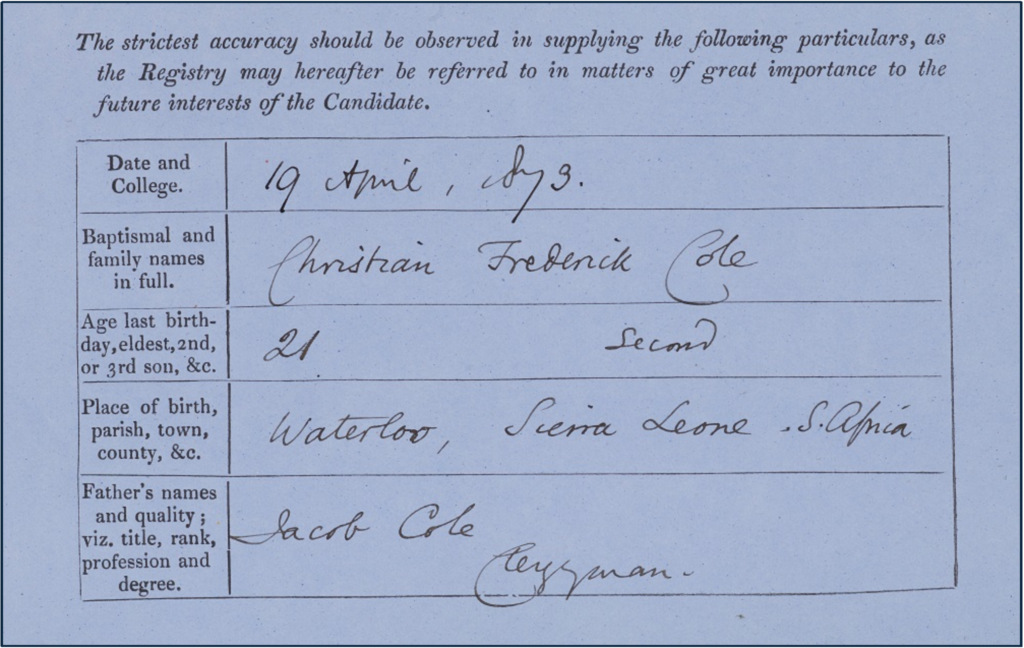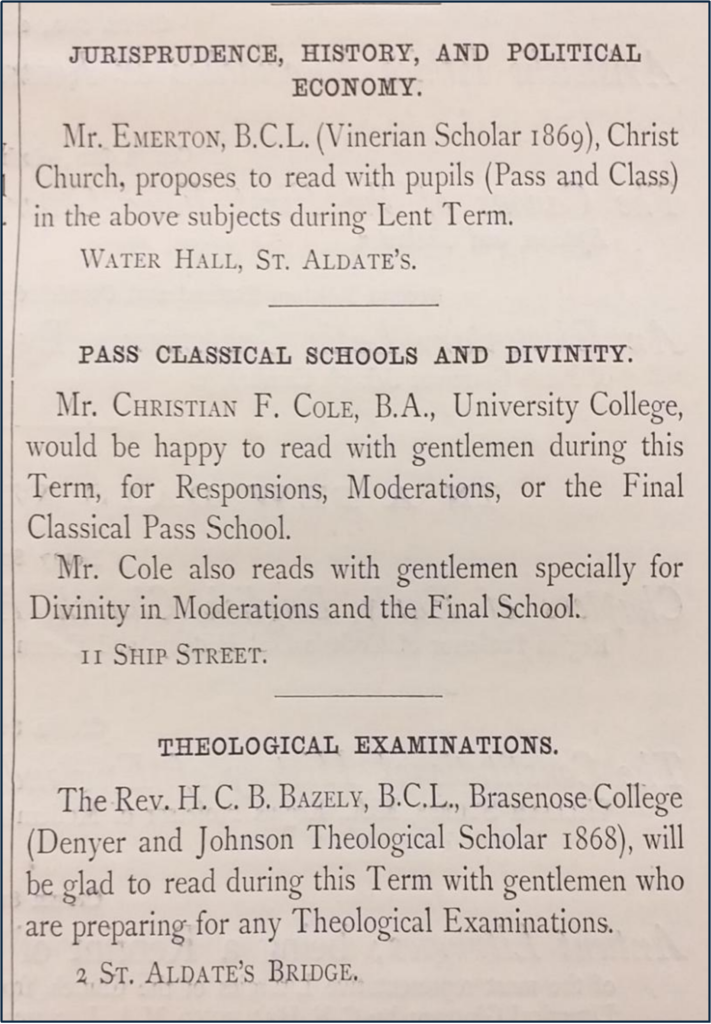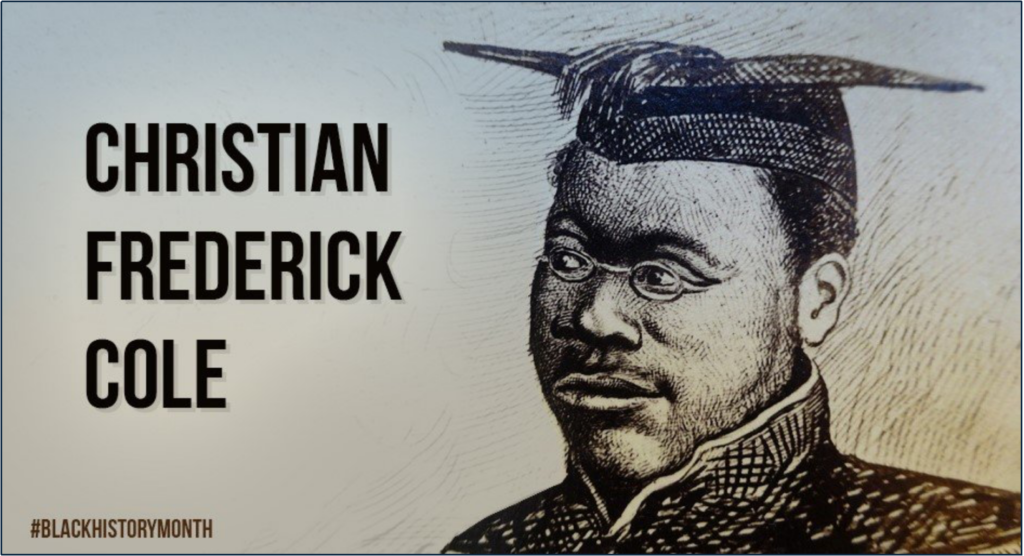As part of Black History Month, the University Archives blog for October celebrates the achievements of the first black student at the University: Christian Frederick Cole.
Cole was admitted to the University (‘matriculated’) nearly 150 years ago on 19 April 1873. A young man of 21 from Sierra Leone, he was the adopted son of a clergyman, Jacob Cole. His grandfather had been enslaved. The information he gave the University at his matriculation was brief and the document itself, written in his hand, is unremarkable. But the significance of this small piece of blue paper is great.

Matriculation form of Christian Cole, 1873 (from OUA/UR/1/1/5)
The University did not start recording the ethnicity of its students until late the following century, so we cannot say with absolute certainty that Cole was the first black student; but his presence in Oxford was remarked upon by contemporaries, suggesting that his appearance was something new. Unfortunately, we don’t know what he looked like: we have no images of Cole here in the Archives (the University didn’t take photographs of its students at this time) and the only known images of him are contemporary caricatures showing him racially stereotyped.
Cole was admitted as a non-collegiate student. Non-collegiate or ‘unattached’ students were first admitted to the University in 1868 as part of a move in the second part of the nineteenth century to open it up to a ‘larger and poorer class of the population’. It was one of several developments at the time to widen access to a university which was expanding, both in terms of undergraduate numbers, as well as the diversity of the backgrounds of its students.
Non-collegiate status enabled men (it was still only men) to become students without being members of a college or hall; college membership put studying at Oxford out of financial reach for many. Cole was not a wealthy man. He’s said to have suffered much hardship whilst a student, especially after financial support from his family ceased. He found different ways to fund his time here, giving music lessons and offering private tuition to undergraduates, advertising his services in the University Gazette.

Advertisements for private tuition from the ‘University Gazette’, 29 January 1878
Cole worked hard at his studies, in Latin and Greek, gaining fourth-class honours in Literae Humaniores (ie classics), a very respectable achievement at the time, especially for a non-collegiate student. Non-collegiate students tended to pursue a broader and more general course of study for the BA (known as the Pass School) rather than the single-subject specialisation required for honour schools.
His BA was conferred in 1876 and this is the last mention of him in the University’s records here. Shortly after that, however, he became a member of University College, through its Master, George Bradley. Until Cole left there in 1880, Bradley personally paid his college membership fees. He also had the support of his fellow students in the college who started an appeal to help him after his family’s financial support ended.

Cole went on to study at the Inner Temple and became a barrister-at-law in 1883. He was the first black African to practise law in an English court. It appears, however, that he struggled to find enough work and had to return to Africa. Cole died in 1885 in Zanzibar of smallpox aged only 33, but he was a pioneer and his experience at Oxford opened the door for other black students to follow. A plaque was erected at University College in 2017 to commemorate his achievements.
